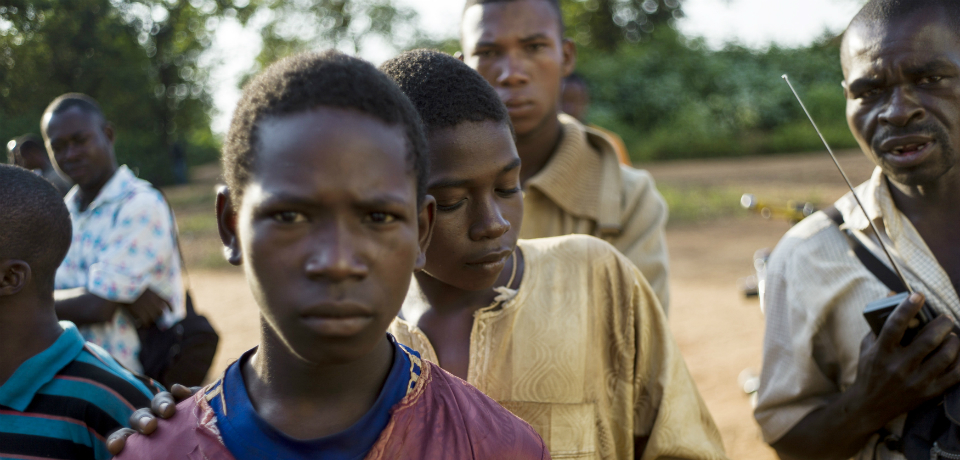
The Central African Republic (CAR) is a poor, arid, landlocked country the size of Texas. According to the United Nations, the former French colony is now experiencing the world’s largest forgotten humanitarian crisis. In March 2013, a mainly Muslim rebel group overthrew the corrupt regime of President François Bozizé. In response, a Christian militia took revenge on the country’s Muslim minority with a brutal campaign of ethnic cleansing. Ninety-nine percent of Muslims in the capital, Bangui, are dead or have left, and one quarter of the country’s entire population have fled their homes.

The Central African Republic (CAR) is a poor, arid, landlocked country the size of Texas. According to the United Nations, the former French colony is now experiencing the world’s largest forgotten humanitarian crisis. In March 2013, a mainly Muslim rebel group overthrew the corrupt regime of President François Bozizé. In response, a Christian militia took revenge on the country’s Muslim minority with a brutal campaign of ethnic cleansing. Ninety-nine percent of Muslims in the capital, Bangui, are dead or have left, and one quarter of the country’s entire population have fled their homes.
Despite the religious make-up of the warring parties, refugees who have sought shelter in neighboring Chad do not describe a conflict driven by religion. When I spoke with them, they emphasized the years of harmony between their country’s Muslims and Christians and the exemplary behavior of faith leaders since the conflict began. Research by Louisa Lombard and Sylvain Batianga-Kinzi confirms that this civil war is not really about religion — but is rooted in decades of marginalization and poverty. The political leaders responsible for the current chapter of the CAR’s dismal post-independence history have lost control of the angry young men they motivated, manipulated and armed in order to achieve their aims, and their country is now paying the price.
The reason such manipulation was possible in the first place is that so many of the CAR’s young men are socially and economically marginalized. Poor education, limited employment opportunities, and frustration with the country’s corrupt and ineffective governance make these men prime targets for exploitation and radicalization. And it’s about time the international community started paying attention to this phenomenon, as it is not limited to the CAR, but increasingly common across the region. Success in reducing infant mortality, coupled with a failure to reduce fertility rates, has caused a population bulge among 15- to 24-year-olds in northern Nigeria, Niger, Chad, the Democratic Republic of Congo (DRC), Sudan and South Sudan. Sub-Saharan Africa has the highest proportion of youth in the world, with a median age of 18 — and they are twice as likely as their parents to be unemployed.
Another factor common to the CAR and its neighbors is limited access to education. Some young men from traditional livestock-herding backgrounds are unconvinced that the meager education on offer is useful in their impoverished rural circumstances. Others embrace an ideology that rejects education as “Western,” which can be a compelling argument in a society that was colonized and exploited by European powers. But mostly simply don’t have access to the very limited education systems their weak governments have managed to set up. UNESCO figures suggest that the eighteen countries with the lowest levels of youth literacy are all in sub-Saharan Africa. Guinea’s youth literacy rate is only 31 percent, while the CAR and Niger score not much better with 37 percent. Altogether in Sub-Saharan Africa and parts of South and West Asia, there are 48 million illiterate young people. Shocking as these figures are, they fail to reveal the gap between urban and rural areas in availability of education.
Read more on "Africa Angry Young Men"

